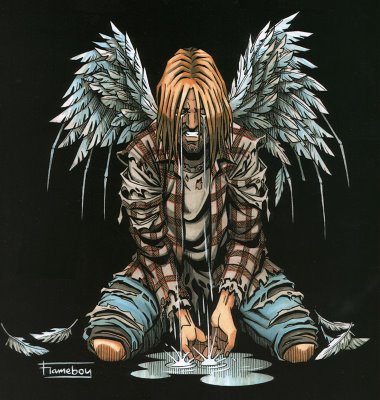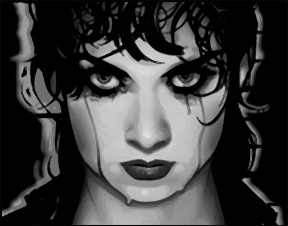Read My Lips: No More Reviews
Some commended me for my patience and marveled at my high endurance levels. Others, like Baldy, found it hilarious that I’d actually sat down and listened to this bitch of an album – and actually reviewed it! I’d whined about this earlier in this blog, even wondering sometimes if this was the ed’s sadistic idea of having a good laugh at my expense! My first instinct was to savagely rip the album apart, but then better sense prevailed...
Now that the damage [to my eardrums] has been done, I thought why suffer alone when I can post the review here had share this agony with a few visitors to this blog ;) Just kidding! I’m just keeping a promise I’d made to Lip. I hope he comes back to read this.
REVIEW
We heard them sing at the recent Pang Lhabsol festival in Gangtok. Yes, we also took note of that catchy ‘eeya eeya eeyo, o yea o’ refrain of the song which had the revelers dancing to Lhamu and Rebecca’s tunes. Now, we bring you the lowdown on the two songbirds’ latest album Manai Ta Ho - Simply A Heart. The album attempts to do a bit of everything: opening with traditional, folksy tunes, the album progresses towards more contemporary sounds, with upbeat, up-tempo songs occasionally interjecting these tracks.
The album opens with the title track Manai Ta Ho, an I-can-survive-without-you themed song written and composed by Rajen Ghimirey, followed by Samla, an interesting, nicely paced flute-driven folksy duet between Rebecca and Rajen Ghimirey. Another interesting folk tune worth a listen is Kaichimarey Pharia where an excited would-be bride sings praises about her knight in daura surwal and the dream trousseau she wants to wear when she accompanies her beau to his village. Written and composed by Noel Lepcha, it is one of the few songs from the album that stands out.
In fact, Manai Ta Ho boasts of a host of renowned artists and musicians collaborating to put this album together, from veterans like Rajan Ghimirey to the young and rock ‘n’ rolling Abhaya Subba of ‘Ahbaya and the Steam Injuns’. Despite this, the album fails to rise above the mediocre.
Two songs that could have been hit among the lovers of contemporary Nepali music are Katai Kahin and Chunauti Paila if only the vocals had gone where the songs require them to. Unfortunately, that is not the case. Katai Kahin demands much more than Rebecca’s vocals can deliver and all attempts to pull a Hema Sardesai here falls flat. Chunauti Paila is an interesting song - with a dash of bluesy rock - about overcoming obstacles. Though Abhaya’s arrangement sets it apart from other tracks, what puts a dampener to the song is the lack of punch in Lhamu’s vocals, something that this particular song strongly demands.
Another song that should not have made it through the final cut is Party Girls, a Nepali-English bilingual disco track about partying hard - Asha Bhonsle ishtyle - with some weak rap bit thrown in for good measure. Though this is definitely intended to be a dance floor scorcher, we can’t think of any local DJs who’d want to play this one. This song is another example that dance numbers don’t require much coherent lyrics and even arm-farts accompanied by an upbeat tune can do the trick. Hitting the skip button recommended on this one.
The plus point for this album is its lack of those overtly lovelorn songs. Though the theme of ‘having loved and lost’ appears more than a couple of times, it’s handled more positively, with the protagonist choosing to move on instead of dwelling in the bitter past. Ritu Naya is one such up-tempo track with a catchy ‘eeya eeya eeyo, o yea o’ chorus and a little bit of rap. This track, we believe, will be honoured with a repeated play this dassain.
Rating: 2/5









